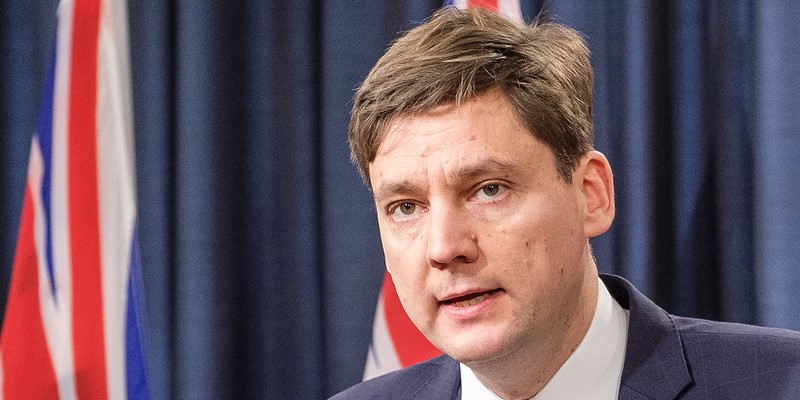B.C. government projects massive debt accumulation—and British Columbians will pay the price

The Eby government’s provincial budget released Thursday projects massive debt accumulation fuelled solely by high government spending. Including long-term capital spending (i.e. highways and schools), British Columbia’s net debt (total debt minus financial assets) is projected to reach a whopping $128.8 billion by 2026/27—a 227 per cent increase since 2016/17, which marked the end of an era of fiscal restraint.
After nearly two decades of spending restraint (1999/00 to 2016/17) the province has experienced an explosion in government spending. Inflation-adjusted program spending reached its highest level on record in 2022/23 at $14,275 per person—$3,739 higher than in 2016/17.
And the government can't attribute this record level of spending to the pandemic. B.C.’s inflation-adjusted program spending per person was at a record high in 2022/23 even if COVID-related spending is excluded.
Moreover, consider the increase in program spending in just the last year. In its 2023 budget, the government planned to spend $79.3 billion in 2024/25 and $80.6 billion in 2025/26. One year later, its actual program spending for 2024/25 is expected to reach $85.3 billion and reach almost $85.8 billion this fiscal year. Put differently, the provincial government plans to overspend by $11.2 billion relative to its 2023 budget plan.
According to the 2024 budget, high spending growth will continue and fuel deficits over the next three years, putting immense pressure on provincial finances. Planned budget deficits in 2024/25 ($7.9 billion) and 2025/26 ($7.8 billion) are now more than double the estimates provided in last year’s budget. The increases in the deficit come despite expected revenue increases of $1.8 billion in 2024/25 and $615 million in 2025/26 compared to the 2023 budget.
The government has largely borrowed to finance its high spending. Net debt (total debt minus financial assets) is projected to triple from its 2016/17 level by 2026/27. For context, net debt will increase from $10,288 per person in 2016/17 to a projected $21,040 per person in 2026/27.
Of course, British Columbians must pay interest to service government debt. And in the current interest rate environment, payments to service provincial debt have become more expensive. The B.C. government expects debt interest payments to cost $977 per British Columbian by 2026/27. Debt interest costs siphon off taxpayer money that could instead be used for important services or even to reduce taxes.
Finally, while the government introduced a new tax for residential house-flipping, there were no other significant changes to the tax system in the budget. However, B.C. is markedly uncompetitive with comparable jurisdictions on personal income tax rates and the 2024 budget was yet another missed opportunity to address this problem. For example, the province has the fourth-highest top combined (federal and provincial) income tax rate among 61 Canadian provinces and U.S. states. And its high effective business taxes discourage entrepreneurship and business investment.
These high marginal personal tax rates make the province less attractive to skilled workers and limit economic growth by reducing incentives for entrepreneurship, investment, savings, business development and work.
The Eby government would be in a much stronger fiscal position had it maintained the fiscal discipline that prevailed in Victoria until 2016/17. And if the government reduced B.C.’s high taxes, it would fuel stronger economic growth. Unfortunately, the government has continued its spending and borrowing spree along with maintaining high taxes—and British Columbians will pay the price.
Authors:
Subscribe to the Fraser Institute
Get the latest news from the Fraser Institute on the latest research studies, news and events.

